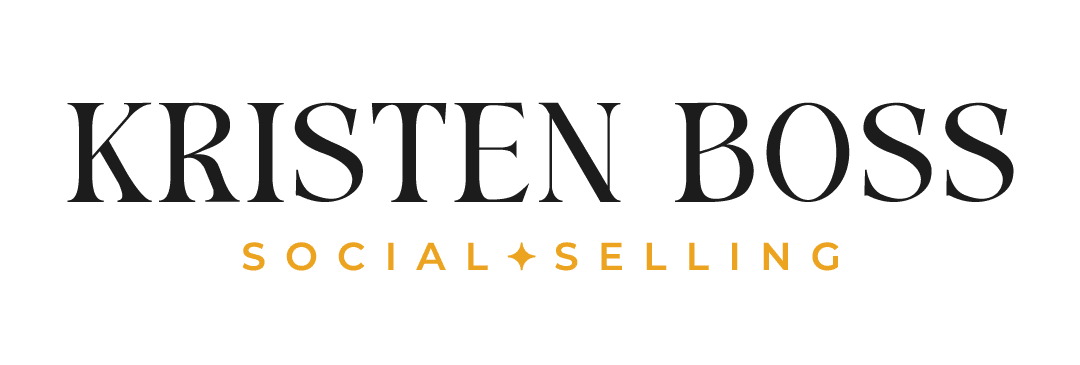Have you ever caught yourself in the middle of a trash thought and wondered how you got there? Sometimes when you’re in the middle of doing something hard (hitting a big goal, trying to exercise more, getting the kids to stick to a bedtime routine), your brain offers these thoughts to try and seek out comfort. It’s not working. I’m not good enough. Nobody listens to me. When in truth – these are just thought patterns you’ve created in order to remove yourself from discomfort.
And that’s ok to a point.
But having these trash thoughts and then choosing to believe them and, in turn – allowing them to alter your course is not ok. Instead, Kristen is encouraging you to call yourself on your own BS. Instead of accepting these stories as facts, she wants to show you how to recognize these thought patterns in order to break the cycle and win the day.
Here’s how:
- Why being prepared for these thoughts can ultimately crush the pattern
- Where (and why!) guilt comes into play
- How to recognize the indications that will alert you when you’re engaging in self-sabotage
- Important questions to ask yourself when stuck in a pattern of self-sabotage
Getting clear on your own BS behavior is the first step. Your brain will default to these same thoughts and feelings over and over when things get hard. And if you can anticipate these thoughts, it will help you to stay on top of your game and out of your own way in order to reach your goals.
Thanks for listening! If you’re ready for high-level coaching and teaching in your network marketing business, check out Kristen’s exclusive Mastermind for six-figure earners in the network marketing industry. Get all the details about the Purpose & Profit 6-Figure Mastermind and join the waitlist here.
Connect with Kristen:
If you’re ready to learn the simple process of running your social selling business online, you have to check out Kristen’s live group coaching program! The Social Selling Academy: www.thesocialsellingacademy.com
Do you have a business full of customers and almost no builders? You’re in need of a reboot! Learn the three skills you can learn that will completely change your recruitment game. Check it out here.
Transcript for Episode #122 Calling Your Own BS:
Kristen Boss (00:05): Welcome to Purposeful Social Selling with Kristen Boss. I’m your host, Kristen Boss. I’m a mindset and business coach with more than 15 years experience in both the product and service based industry. I believe that social selling is the best business model for people wanting to make an impact while they make serious income. This is the podcast for the social seller, who is tired of feeling inauthentic in their business and desires to find a more purposeful and profitable way of growing their business in today’s social media landscape. In this podcast, you will learn what it takes to grow a sustainable business through impactful and social marketing. It’s time to ditch the hustle and lead from the heart. Let me show you the new way.
Kristen Boss (00:48): Hey bosses. Welcome to another episode today. We are going to be talking about how to call your own BS when it comes to getting in the way of building the business you want and getting the results you want. I think sometimes we can be aware of our self sabotage behaviors. And I think sometimes when people tell me about it, they can be kind of lighthearted kind of very tongue in cheek about it being like, oh yeah, I’m a perfectionist or, oh yeah, I procrastinate. Or, oh yeah. I tend to, you know, have all or nothing thinking. And we just kind of throw it out there without actually sitting with that and understanding those parts of ourselves and asking ourself, why do I tend to be, why do I tend to, you know, drift towards perfectionist thinking, why do I tend to procrastinate? Why do I do these things?
Kristen Boss (01:37): And if we want to create different results in our life, we have to break patterns. And the patterns we have to break are, are thought behavior patterns are automatic thoughts that come up often and all the time. And honestly, I believe being a self-aware business owner is one of the most important things we can do. And just even in our life, if we want to enrichen our life, if we want to improve the quality of our life, then we need to improve the quality of our thoughts. Because the way we think informs the way we feel and how we feel informs, how we show up in the world and our behaviors and our behaviors and the things we’re doing is always creating results. And so what I want you to get clear on today when you’re watching this is I want you to get very clear on your own BS behavior that your brain offers when things get hard and everybody has this at some point or another, but when you can anticipate your own BS, when you can anticipate the little tantrums, your brain is going to throw, when things get hard or things feel frustrating or things feel difficult, it helps you be on top of your own brain.
Kristen Boss (02:43): Instead of believing the thoughts that it offers you like nobody is interested in your business right now. It’s not a great time to have a business. The economy is suffering too much. You know, people we’re in a recession, people are never going to buy from you. And when you aren’t aware of how your brain operates and how it endeavors to protect you, because again, your brain only offer. These offers you these thoughts, because it really believes it’s serving you in some way because your brain you’re operating from that lizard part of your brain in the back, the very primal part of your brain, where it’s job is to keep you safe and alive. It’s always looking for perceived threats. So for you to put yourself out there, make offers, be vulnerable, be seen that lizard brain is like, oh no, we don’t do that. So I wonder what kind of stories I would have to offer her or them to not take the action to not do this thing that would make me feel at risk.
Kristen Boss (03:41): So first it’s important to be compassionate for that part of yourself and understand it’s just your brain doing this job. And at some way it thinks it’s serving you. It thinks telling you that there’s a recession, or it thinks telling you that people aren’t interested. It thinks that if it tells you that it’s serving you or helping you in some way. So the reason why you need to be ahead of your own BS is you need to be able to anticipate it so that when it comes up in the moment, because oftentimes when your brain offers you these stories, it comes during a time when you feel emotionally charged, very rarely will your brain tell you, nobody wants this without feeling some emotional charge in your body with that thought that makes you think maybe it’s true. It must be true. It feels true. Instead.
Kristen Boss (04:28): It’s important for you to understand ahead of time. Okay? Because in the moment when you’re feeling really emotionally charged, when your body might be in that fight flight freeze state, it’s very hard to rationalize with that part of your brain when it’s like, ah, I’m trying to survive. But the best way to do that is knowing ahead of time, what your brain likes to do when the going gets tough. And so I think one of the best hacks I can offer you today is I would encourage you to look for patterns. Think about the last three things you gave up on or you quit on, or you phoned it in. Think about the last three things where you quit. You didn’t do what you said you were going to do and go back and ask yourself, what did I tell myself? What was I thinking when I, that caused me to throw in the towel and say, I’m going to start again on Monday.
Kristen Boss (05:21): What was I thinking as I’m recording this, it’s the 2nd of August. And maybe some of you, you closed out the month of July for your business and maybe it wasn’t what you thought it was going to be. And one of the things I like to ask people is at what point during the month did you decide ahead of time that your results weren’t possible. You looked at the numbers, you looked at things and you said, there’s no way this is going to happen. And you took your foot off the gas or you have to ask yourself, what did I tell myself? What story was I believing that caused me to throw in the towel and say, you know what? Let’s revisit this next month. Maybe it’s not even business. Maybe it’s with your health. Maybe it’s with working out or eating better. And you come up with this plan and you have this food plan, your grocery list, your meal prep, you have your workout plan.
Kristen Boss (06:07): You have it all planned out. And then, you know, come Thursday, you have a little slip up in your day. And there’s some story that your brain offers you when you slip up that has your next move being or saying to yourself mm it’s all a wash now. Forget it. I don’t know why I’m doing this. Let’s just revisit this Monday. The whole diet starts again Monday, or let’s just reset it on Monday. It’s all a wash. Now you have to go back to, okay. What was I telling myself that had my very ne next action being telling myself that, you know, I’ll wait till Monday. I’ll wait till the first of the month. I’ll put this off for another time. Maybe it’s your business? Like why do you keep putting your business on hold? What stories do you perpetually? Keep telling yourself? I know for moms, there are a lot of stories or for parents and caretakers.
Kristen Boss (07:03): It’s like, well, when this person doesn’t need me, when it’s easier, when the children are more independent, when they’re back in school, when things feel less stressful. But let me ask you, when does it ever feel? Less stressful. When does life ever not feel busy? It just becomes a different flavor of busy. I remember, you know, my kids are 15, not quite 16 months apart. And so when they were babies, I just remember thinking ma it’s going to get easier. It’s going to, I’m going to be less busy. Somehow. I told myself I was going to be less busy as they got older and I didn’t get less busy. It was just a different kind of busy. It still took the same amount of time. The same amount of energy. I might be sleeping more, but the level of busy is still there. And so I want you to ask yourself, get clear.
Kristen Boss (07:47): Now, when you’re not in an emotionally charged state, when your nervous system isn’t in fight or flight, and I would encourage you to sit down and write down, here’s all the stories my brain likes to tell me when I’m lacking belief. And they typically are the same stories all the time, because your brain knows it works. If I tell this story, they stop the behavior. And then we have to, then we stop doing the risky thing that scares me. So I’m just going to keep offering this story and they buy it every time. Listen, your brain is the greatest sales mechanism in the world. It’s always selling you a story and you have to decide, am I going to buy it today? Because some of those stories are costing you way too much. The story is that, you know, now’s not the time. You’re not ready. You need to research more.
Kristen Boss (08:35): You need to do a little more personal development before you take the action. Listen, do where all the personal development is. It’s in taking the action. You never learn more than you do when you are taking messy, imperfect action towards your goal. You are constantly getting information feedback with every step you take, you get information, feedback, and your brain processes that, and you learn from it, but your stories are costing you, but here’s where you can get ahead of your own BS. When you’re not in an emotionally start charged place, you can write down all of these stories like nobody wants what I have to offer. My, my family needs me more. I’m not a good parent. If I’m not, you know, if I’m working too much, that’s a story. And I feel like that’s a whole nother podcast episodes. This, this parental guilt that we allow to override things that we are meant to do in the world because we’re letting guilt take the front seat and guilt is completely optional.
Kristen Boss (09:33): And we’ll talk about that. Another episode, because I have things to say about mom guilt, cause I have two little kids. I get it. But this idea is looking at all those stories ahead of time and seeing for them for what they are. They are simply stories, but they just feel different when you’re in a, when you’re in the middle of an emotionally charged moment, suddenly when you charge emotions with those stories, they feel different. They feel true. And when they feel true, we buy them and take the action. So when you can anticipate what your brain wants to offer you, when things are hard, here’s what’s going to happen. Especially when you know it, when you finally get to the hard thing and the story comes up, or maybe you’re in the middle of the behavior, you’re about to, you know, put PO put a pause on your business, say I’m going to revisit this next month.
Kristen Boss (10:21): Or, you know, I’m going to revisit this eating plan on Monday or whatever it is you’re you’re wanting to do. You might catch yourself in the middle of the behavior. You won’t be, you might not be cognitively aware enough or conscious enough of the thought that’s happening. You might not be aware of like, oh, I’m telling myself a story. You’re going to be able to at least examine your behavior and say, oh wait, hold on. I’m about to press pause on this and tell myself, we will revisit this on Monday. And that is your first indicator that you need to pause. Stop, stop right there and say, okay, hold on. I’m doing the thing. I’m doing the thing. I’m back in my pattern where I’m telling myself, I will revisit this the first of the month, or I will revisit this Monday. I’m telling myself this thing, I’m, I’m engaging in the pattern.
Kristen Boss (11:06): And that is when you stop and ask yourself, you might want to ask yourself one of two questions. What am I feeling? What emotions seems most at present? And for some people they’re like, ah, that’s very hard to locate a feeling in my body, maybe emotions. Aren’t the easiest thing for you to identify. You might be able to identify sensations in your body. So identify sensations while I’m feeling tightness in my chest, I’m feeling a sinking sensation in my stomach. I’m feeling a lot of tension in my shoulders or I’m feeling tension in my head. I’m feeling this like a feeling like my stomach is perpetually dropping to my feet. That, so now you’re understanding sensations. And I think eventually with time you can teach yourself emotional language around those sensations. Like, so for me, I know anxiety happens in my chest. For some people, anxiety happens in their gut, in their stomach.
Kristen Boss (12:03): It’s a little bit different for everybody, but I’ve learned to take sensations and then attach an emotion to that sensation that helps me better understand what is happening in my body. That’s directing my behavior. So it’s like, you’re catching yourself in the pattern. Oh wait, hold on. I’m doing it again. I’m about to quit on myself inventory, do a body scan. What am I feeling? Tightness, hot, cold. You know, am I feeling a sinking sensation, a contracting or an expanding sensation. And then if you, if you’re able to be like, oh, well, what emotion might. I equate that with sadness, anxiety, fear, trepidation, worry. There’s a lot you can choose from. And then from there, ask yourself, well, what am I telling myself? What story feels very true to me right now that has me in this state of panic or has me feeling like my chest is contracting in on itself.
Kristen Boss (13:01): What is the story right now? And it might be, you know, we’ll go back to like the mom guilt concept. It might be. I’m telling myself that I’m neglecting my children. And so now I have this horrible, heavy sensation in my chest. I feel this sinking in my stomach and I feel this intense amount of guilt and sadness. And from that guilt and sadness, I’m just telling myself, okay, I’m going to put this away and I’ll just revisit this next month, revisit this then. But if you have sat with your thoughts ahead of time before there’s this intense, emotional charge of guilt and you have seen them and written them down ahead of time, you’re going to be able to like, oh wait, hold on. I knew this ahead of time. I knew going in to this when I sat down and evaluated, anticipated my own BS, my own stories.
Kristen Boss (13:52): One of the stories that I wrote down that my brain is always offering me is that I’m not being present enough for my children. But just because I think it doesn’t mean it’s a fact. It only feels like a fact when there’s an emotional charge around it. Right? Think about that. When you’re writing down the story and there’s no emotional charge, you can look at the, the sentence. I am a bad mom. And look at that and you can disagree with the sentence. You can be like, that’s silly. Why would I think that that’s totally not true. Here’s all the evidence of why I’m a good parent, but the moment there’s an emotional charge, then it feels true. Like I’m feeling this intense guilt. Therefore it must be true. But when you are in that moment, again, when you’re observing the behavior, when you’re looking at the emotion, now we have an awareness of like, hold on.
Kristen Boss (14:40): My brain is offering me the thought, what is it trying to stop me from doing? Think about that. What is my brain trying to protect me from in this moment? Rejection, shame, fear, doubt. What emotional experience is your brain trying to get you off the hook of discomfort, or fatigue. What’s happening. I know for me, for a while, I would quit on myself on not following through with an exercise, because for some reason I feared exertion. I don’t know why it was just something like, I didn’t want to feel depleted. I didn’t want to feel the the intensity in my body. I didn’t want to feel the fatigue of my muscles. I didn’t want to feel winded. I didn’t want to have that physical experience. So then I felt like dread or just extreme resistance to the activity because I wanted to avoid the exertion. For some reason I would, I didn’t see exertion as a great thing.
Kristen Boss (15:39): I saw exertion as like, I don’t want that. I don’t want to experience that. So to really reframe my stories and I also had to learn to anticipate my brain’s own BS. When it would tell me like, we don’t want to do this, this doesn’t work or whatever else. So when you can be ahead of your stories, you can call BS on them. And what it does is kind of shakes you out of your emotional experience. That feels true. And it allows you to see it as a story instead of a fact, because you’ve observed it ahead of time. You’ve, you’ve reconciled those thoughts ahead of time and said, wait, hold on, hold on. I’m going to view this and realize that this is not true. Listen, when you can observe your own BS, you will stop getting in the way of your own results. You’ll start to call yourself on it, for example, and, and I I’ve done this in a kind of a lighthearted way.
Kristen Boss (16:28): And one of my mentors gave me this really helpful language to use whenever my brain was offering me my same old stories. So I think a really common one for a lot of people, especially in business, maybe even in fitness, because it was definitely happening in my fitness journey was it’s not working like my brain loved to tell me at least three times a week, it’s not working. And there’s zero change. Even when I was sitting on evidence of decrease in measurements, change in my pictures, my brain just really loved to tell me it’s not working. Let’s stop. But when I finally learned to anticipate that, what else did it say? It’s taking too long. I’m doing something wrong. I must be me missing something. Just I learned to get ahead of all of my stories. So when things got hard, what happened was I ended up anticipating my brain bringing it up.
Kristen Boss (17:21): So I’d be in the middle of a workout. And I was just like, oh, this is the part where my brain starts telling me it doesn’t work because I’m uncomfortable. Oh, this is the part. This is, it always comes up for me at this time, this day or this season. Oh, here’s, here’s, you know, here’s good old brain bringing up, you know, crappy thoughts yet again. Oh, here’s crappy thought Numero UNO back to try and get in the way of my results. Almost kind of viewing it with humor. Just like being like, oh, here’s my brain with the same playbook, offering me the same lines. And I’m not going to believe them today. This is what gives you power. When you do feel emotional and mental drama around doing the hard things is noticing when your brain is just bringing up its old survival tactic, its old lines.
Kristen Boss (18:12): And eventually what will happen is the more you start to dismiss and ignore those stories, they will start to lose their power. They will start to lose their emotional charge and your brain will bring it up like, Hey, this isn’t working and you’re going to be able to observe the thought and say, yeah, I don’t, I, I don’t believe that. And, and it, and it’s going to, you’re going to feel way less emotional charge around it. And eventually slowly with time, your brain will offer the thought less and less and less because it’s not working. It’ll find a different thought. You’re going to have to find a new flavor of thought, but here’s a way to really get ahead of your own BS and to stay in action today. Write down here are my top five stories that my brain always tells me when things are hard and it would be even better if you can assign the emotion that it, it typically evokes.
Kristen Boss (19:03): So if you’re like, if one of your favorite thoughts, you know, default thoughts is it’s not working, then I would say, okay, what emotion does that often evoke for you? And for most people it’s like defeated, discouraged, hopeless despair. And I would say pick one emotion, which one? Defeated. Okay, great. Now fast forward, when you are having the emotional experience of defeat, you might not be cognitively aware that you are believing that it’s not working, but you’re going to be able to notice the emotional experience you’re in and then you’re going to be able to assign, wait, hold on. I think I’m feeling despair because I’m subconsciously believing that it’s not working again. This is the emotional experience I’m creating for myself because I’m believing this on some level and I can choose to leave this emotional experience. The moment I disengage from that thought I can choose to believe something else.
Kristen Boss (19:57): You can have agency over that experience. So get ahead of yourself, get ahead of your own BS, get out of your own way, anticipate your own BS so that when it comes up, because it’s going to, it will, when you do hard things, when you opt in for growth, of course your brain is going to be offering so many stories because it thinks it’s protecting you. It thinks it’s keeping you safe. It thinks it’s serving you. And so you can have compassion for your brain and say, oh, it’s cute. That my brain is once again, trying to protect me by keeping me small, keeping me in the same place so that I don’t, you know, risk vulnerability or shame or disappointment or any of those other unpleasant things that just come with growth. Your brain doesn’t want growth because it doesn’t want to have to experience a lot of discomfort.
Kristen Boss (20:43): So it’s just going to keep telling you stories to bring you back to your zone of comfort, back to familiarity, back to the same old, same old. And it’s really easy to convince yourself. It’s great right here. I don’t nothing has to change, but you’re here for a reason. You’re watching this for a reason. You’re listening to this for a reason because you want change. But you have to understand that with change means comes challenge, which means your brain is going to offer you lots of flavors of excuses. So get ahead of it. Find five of them today, write down and assign the emotional experience that often comes with each of those. So that next time you are having an emotional experience or you’re in the pattern again, in the pattern of giving up on yourself, you’re going to know exactly what’s going on and you might even be like, yes, I figure I am on top of myself. This is a no, I will not engage this and I’m going to keep moving on. So do that today. You’ll get out of your own way. We’ll catch you next time.
Kristen Boss (21:49): That wraps up today’s episode. Hey, if you love today’s show, I would love for you to take a minute and give a rating with a review. If you desire to elevate the social selling industry, that means we need more people listening to this message so that they can know it can be done a different way. And if you are ready to join me, it’s time for you to step into the Social Selling Academy, where I give you all the tools, training, and support to help you realize your goals. In the Academy, you get weekly live coaching so that you are never lost or stuck in confusion. Whether you are new in the business or been in the industry for a while, this is the premier coaching program for the modern network marketer. Go to www.thesocialsellingacademy.com to learn more.










